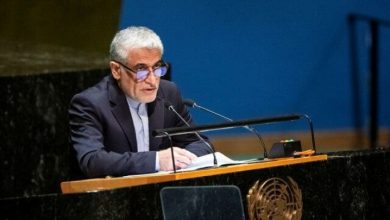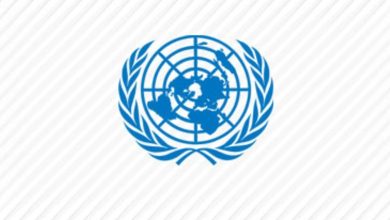Association for Defending Victism of Terrorism – Despite successful international counter-terrorism initiatives, the extremist group Da’esh and its affiliates continue to pose a serious threat in conflict zones and neighbouring countries, the UN Security Council heard.
Ambassadors were briefed by two senior UN counter-terrorism officials who presented the Secretary-General’s latest report on the group, also known as the Islamic State in Iraq and the Levant (ISIL), which showed that the threat in non-conflict areas remains low.
“This analytical distinction can obscure what is the complex, context- specific and dynamic nature of how these groups operate and evolve and their impact on international peace and security,” said Vladimir Voronkov, head of the UN Counter-Terrorism Office (UNOCT).
He stressed that countering and preventing terrorism require long-term commitment as well as continued and coordinated efforts.
Mr. Voronkov said the continued expansion of Da’esh and affiliates in parts of Africa, as well as the increasing level of violence and threat, remain deeply concerning.
The Da’esh affiliate in the Sahel region “is becoming increasingly autonomous” and stepping up attacks in Mali, Burkina Faso and Niger.
“The confrontations between this group and an Al-Qaida affiliate in the region, coupled with the uncertain situation after thecoup d’état in Niger, present a complex and multi-faceted challenge,” he added.
Conflict and instability in Sudan have also renewed attention on the presence and activity of Da’esh and other terrorist groups there.
“Thein-country operational capabilities of Da’esh’s so-called Khorasan province, sanctioned as ISIL-K, has reportedly increased, with the group becoming more sophisticated in its attacks against the Taliban and international targets,” he said.
“Moreover, the presence and activity of some 20 different terrorist groups in the country, combined with the repressive measures put in place by the Taliban de facto authorities, the absence of sustainable development and a dire humanitarian situation, pose significant challenges for the region and beyond.”
“As a result of counter-terrorism efforts, Da’esh has moved to adopt less hierarchical and more networked, decentralised structures, following Al-Qaida’s footsteps, with increased operational autonomy by its affiliated groups,” said Mr. Voronkov.
Natalia Gherman, Executive Director of Counter-Terrorism Committee Executive Directorate (CTED), the secretariat for the Council’s own Counter-Terrorism Committee (CTC), addressed four key trends in the report.
Among them were continued efforts by Governments to repatriate their nationals from camps in northeast Syria hosting thousands of people, mainly women and children, with alleged ties to terrorist groups.
“At the same time, we must also recall the responsibility of Member States to bring terrorists to justice, and to demonstrate international cooperation in efforts to do so,” she said.





